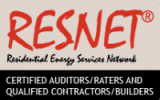The City of Denver is taking some important steps in ensuring that the commercial buildings in the city are healthy and safe. As part of these efforts, they have implemented some new energy-efficiency standards in an effort to help improve the city as a whole. Take a look at some of these groundbreaking efforts.
New Building Codes
The City of Denver has recently adopted some new building codes that were initiated by the International Code Council (ICC). These codes are designed to make buildings safer and more energy-efficient. They will affect both new buildings as well as older ones that are being renovated.
Energy-Efficiency
The new codes will ensure that new buildings run with 25 percent more energy efficiency. Collectively, this step improves the city as a whole.
Preservation
The new codes will also make it easier for renovations and repairs that will enhance the energy efficiency to be made to existing buildings. This approach will help these buildings remove previously set boundaries and prohibitive costs. It ultimately creates a more pragmatic way of sustaining older buildings.
Customization
The city of Denver has created some city-specific customizations to these building codes as well. By doing this, the codes can better meet the unique needs and values of the city of Denver. Some examples of the customized codes include requiring single-family homes and duplexes to include the proper materials and hookups to accommodate charging electric cars.
Energy Efficiency and Health
Commercial buildings that are energy efficient have been found to be healthier than their non-energy-efficient counterparts.
Air quality
Buildings that focus on having an efficient use of energy ultimately have better air quality. A large part of keeping an energy-efficient building is ensuring the heating and cooling systems (HVAC) are working at an optimal level. Swapping out HVAC systems for Variable Air Volume (VAV) systems not only results in more energy efficiency, but studies have also shown a decrease in employee illnesses in these buildings.
Reduces air pollution
Not only can having an energy-efficient building improve the health of the people who work there, it can also have an overall positive effect on the health of the entire community as well. Energy-efficient buildings produce far less air pollution than those that are not energy efficient. So, the air surrounding the building is better for people who surround the area to breathe in. Further, any building that can produce a reduced amount of air pollution is good for the world as a whole.
Increases perceived good health
Much of the overall health of any individual is based on one’s own perceived level of health. Studies have shown that people who work in energy-efficient or “green” buildings have an overall feeling of good health, which results in a reduced amount of absenteeism from work. This perception has particularly been seen in people with diagnosed respiratory disorders such as asthma and allergies.
Working in energy-efficient buildings has also shown to have a positive effect on people who suffer from depression and stress. Proper air sealing will also prevent the growth and development of moisture, mold, and rot that can also adversely affect the inner workings of a building.
Energy Efficiency and Safety
Not only do energy efficient commercial buildings save money for the businesses that occupy them, they also help the people inside as well as those in surrounding areas be safer as well.
Better lighting
New technologies in energy efficiency bring with them better ways to bring artificial light into a commercial building. Not only does energy-efficient lighting make sense financially for a business, but it also makes the work environment safer as well. Lighting for the exterior of the building and areas such as parking garages can use LED lights that provide an added layer of security for employees so they can traverse these areas without worry. The interior of a commercial building can also use soft lighting options that are easier on the eyes of the people inside, but still provide an adequate amount of light in work spaces.
Preventing air leaks
Buildings that are energy efficient have a limited amount of air leaks. In fact, many of have no air leaks at all. When there are air leaks in a building, there is always a chance of contaminants and pollutants getting into the building where they can be breathed in by the people who work there. Breathing in these substances can lead to the onset of respiratory issues and other ailments. So, limiting and preventing air leaks is a key step in keeping a building safe for everyone.
Energy Audits
The best way to make sure a building is energy efficient is by having an energy audit conducted.
Commercial energy audit
A commercial energy audit is a diagnostic test that will be conducted on your building. The results will provide you with cost-efficient energy saving solutions that you can implement in your daily operations of your business.
Denver is taking great strides in making sure the commercial buildings in the city are comfortable, healthy, and safe for its citizens. If you own or manage a commercial building in Denver, you can help the cause by scheduling your commercial energy audit with E3 power today.
Thanks for reading our blog. How can we help you? Contact us today.



